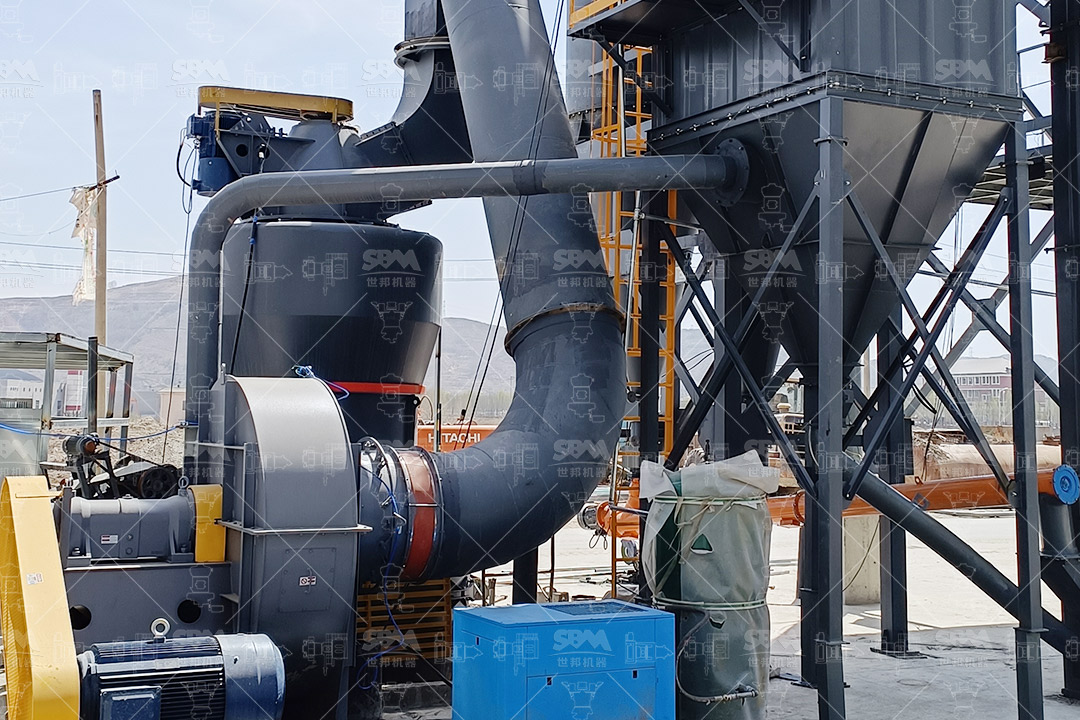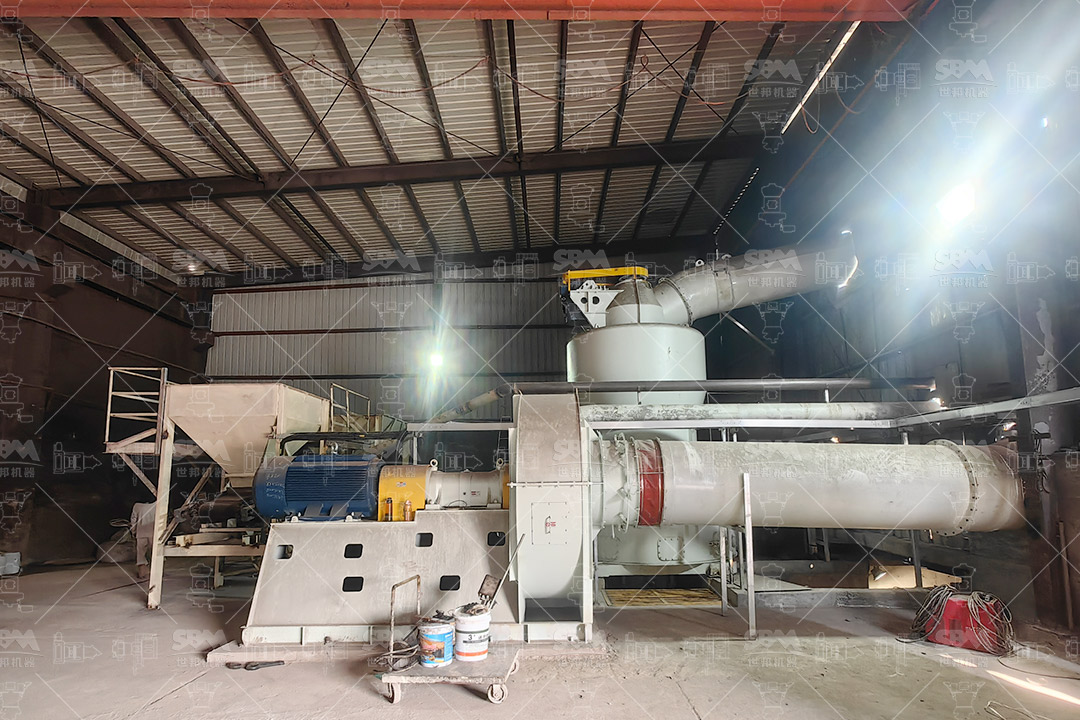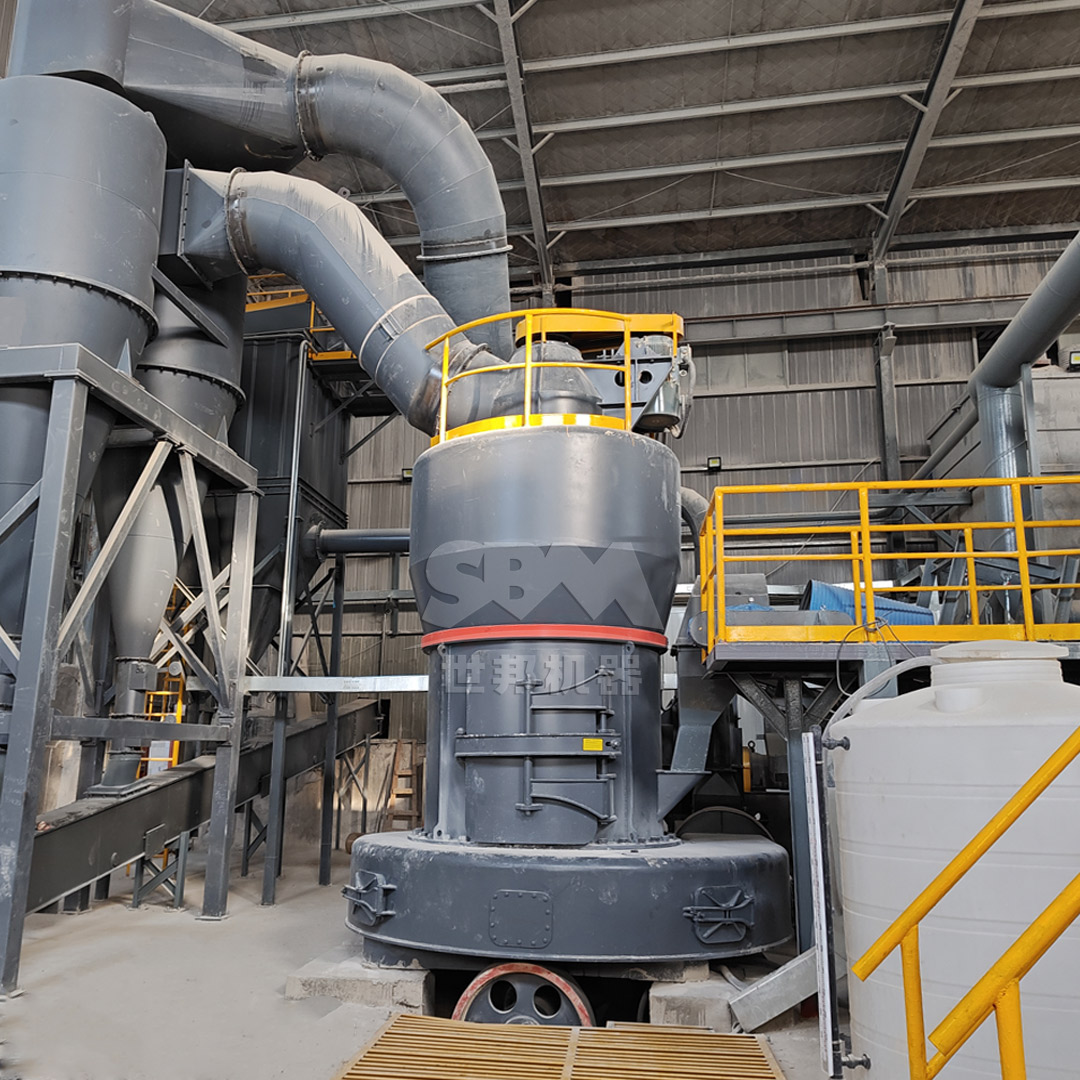Talc is one of the most important mineral fillers used in polypropylene (PP) compounds, serving as a functional additive that enhances mechanical properties, thermal stability, and dimensional stability. The effectiveness of talc in PP composites is heavily dependent on its particle size distribution, surface area, and purity. Selecting the appropriate grinding mill is crucial for achieving the optimal talc properties required for specific PP applications.
The grinding process directly impacts talc’s aspect ratio, which is critical for reinforcement in PP compounds. Fine talc particles with high aspect ratios provide better stiffness, heat deflection temperature, and impact resistance. However, achieving the right balance between particle size, distribution, and production efficiency requires careful consideration of grinding technology.

Different PP applications require specific talc particle sizes. For general-purpose PP compounds, talc with D97 of 10-45μm may be sufficient. However, high-performance applications such as automotive parts and appliances often require ultrafine talc with D97 ≤ 5μm. The grinding mill must consistently produce the target particle size distribution with minimal oversize particles that could act as stress concentrators in the final composite.
The required production capacity directly influences mill selection. Small-scale PP compounders may need equipment with 0.5-5 ton/h capacity, while large-scale operations might require 25-50 ton/h systems. Energy efficiency becomes increasingly important at higher production rates, as grinding can account for a significant portion of overall production costs.
PP compounds for food contact, medical, and automotive applications have strict contamination requirements. The grinding mill must be constructed with materials that minimize iron contamination and incorporate effective sealing systems to prevent lubricant leakage into the product.
Talc undergoes structural changes when exposed to excessive heat during grinding. Dehydroxylation can occur above 800°C, affecting the mineral’s surface properties and performance in PP compounds. Mills with efficient cooling systems or low heat generation are preferred for high-quality talc production.
| Application | Recommended Talc Fineness | Key Property Requirements |
|---|---|---|
| General Purpose PP | D97: 10-45μm | Cost efficiency, good dispersion |
| Automotive PP | D97: 2-10μm | High stiffness, impact resistance |
| Thin-wall Injection Molding | D97: 1-5μm | Excellent surface finish, flow properties |
| Food Contact PP | D97: 5-15μm | Low contamination, chemical purity |
For PP compounds requiring the finest talc particles (D97 ≤ 5μm), ultrafine grinding mills offer the necessary precision and control. These systems typically incorporate advanced classification technology to ensure tight particle size distributions.
Our SCM Ultrafine Mill represents the pinnacle of ultrafine grinding technology for premium talc production. With output fineness ranging from 325 to 2500 mesh (D97 ≤ 5μm), this mill is ideal for high-performance PP compounds in automotive and specialty applications. The vertical turbine classifier ensures precise particle size control without coarse particle contamination, while the special material roller and grinding ring extend service life significantly. With capacity ranging from 0.5 to 25 ton/h across different models, the SCM series can be scaled to match production requirements while maintaining energy efficiency that is 30% better than conventional jet mills.
For general-purpose PP compounds where talc fineness between 325-800 mesh is sufficient, medium-fine grinding mills offer an optimal balance of performance and operating costs.
The MTW Series Trapezium Mill provides excellent solutions for talc processing in standard PP compounds. With output fineness from 30-325 mesh and capacity from 3-45 ton/h, this mill covers the majority of industrial PP applications. Its curved air channel design reduces energy consumption while the combined shovel blade system minimizes maintenance costs. The MTW series is particularly suitable for operations requiring high volume production of consistently sized talc particles with minimal energy input.

Vertical roller mills offer high efficiency for large-scale talc production with relatively coarse to medium fineness requirements. Their compact design and low energy consumption make them suitable for integrated PP compounding facilities.
Traditional ball mills continue to be used for talc grinding, particularly where wide particle size distributions are acceptable. However, their higher energy consumption and limited classification capabilities make them less suitable for high-performance PP applications.
| Mill Type | Output Fineness | Capacity Range | Energy Efficiency | Suitability for PP Compounds |
|---|---|---|---|---|
| SCM Ultrafine Mill | 325-2500 mesh | 0.5-25 t/h | Excellent | Premium (automotive, medical) |
| MTW Trapezium Mill | 30-325 mesh | 3-45 t/h | Very Good | Standard (general purpose) |
| LM Vertical Mill | 30-600 mesh | 3-250 t/h | Excellent | High volume standard grade |
| Ball Mill | 0.074-0.8mm | 0.65-450 t/h | Moderate | Basic applications |
Automotive applications demand talc with exceptional fineness and high aspect ratios to achieve the required mechanical properties. For these applications, the SCM Ultrafine Mill is the preferred choice due to its ability to consistently produce talc with D97 ≤ 5μm. The precise classification system ensures no oversized particles that could compromise impact strength. Additionally, the low contamination design maintains product purity essential for exterior automotive parts where surface appearance is critical.
For general PP injection molding applications, talc with D97 between 10-25μm typically provides the optimal balance of properties and cost. The MTW Series Trapezium Mill offers excellent value for these applications, combining high throughput with moderate energy consumption. The wear-resistant design components ensure consistent product quality over extended operation periods.
Vertically integrated PP producers requiring high volumes of talc-filled compounds benefit from the LM Series Vertical Roller Mills. These systems offer the highest capacity with minimal footprint and energy consumption. While the finest particle sizes may not be achievable, these mills provide excellent value for standard-grade talc-filled PP products.

The initial investment in grinding equipment must be balanced against long-term operating costs. While ultrafine mills typically require higher capital investment, their superior energy efficiency can result in lower total cost of ownership for high-volume operations. For the SCM Ultrafine Mill, the 30% energy savings compared to jet mills translates to significant operational cost reductions, particularly in regions with high electricity prices.
Maintenance requirements directly affect production reliability and operating costs. Mills with durable wear parts and accessible maintenance features minimize downtime. The special material roller and grinding ring in our SCM Ultrafine Mill extend service life by several times compared to conventional designs, reducing both part replacement frequency and production interruptions.
Selecting equipment that can accommodate future production increases is crucial for growing PP compounding operations. Both the SCM and MTW series offer multiple model sizes with overlapping capacity ranges, allowing for seamless expansion as business needs evolve.
Effective dust control is essential in talc grinding operations to protect worker health and prevent product loss. Modern grinding mills incorporate advanced pulse dust collection systems that exceed international standards. Our SCM Ultrafine Mill features pulse dust collection with efficiency exceeding 99.9%, ensuring a clean working environment and minimizing product loss.
Noise control is increasingly important in industrial settings. Grinding mills with sound insulation features help facilities comply with occupational health regulations. The SCM Ultrafine Mill operates at noise levels below 75dB, significantly lower than many conventional grinding systems.
With growing emphasis on sustainable manufacturing, energy-efficient grinding equipment provides both environmental and economic benefits. The advanced designs of modern talc grinding mills help PP compounders reduce their carbon footprint while controlling production costs.
A major automotive PP compounder recently upgraded their talc grinding system to our SCM1000 Ultrafine Mill to meet increasingly stringent specifications for interior components. The implementation resulted in consistent production of talc with D97 of 4.2-4.8μm, enabling the development of PP compounds with 25% higher flexural modulus and 15% improved impact strength compared to their previous material. The energy efficiency of the system reduced grinding costs by 28%, while the automated controls minimized operator intervention and improved product consistency.
The evolution of PP compound requirements continues to drive advancements in talc grinding technology. Emerging trends include:
Selecting the right talc grinding mill for polypropylene compounds requires careful consideration of technical requirements, economic factors, and future business needs. For high-performance applications demanding ultrafine talc with tight particle size distributions, the SCM Ultrafine Mill provides unmatched precision and efficiency. For standard applications requiring high volume production, the MTW Trapezium Mill offers excellent performance and value. By understanding the specific requirements of their PP compounds and the capabilities of available grinding technologies, manufacturers can optimize their talc processing operations for maximum product performance and profitability.
As PP compounds continue to evolve toward higher performance and sustainability, the importance of advanced talc grinding technology will only increase. Investing in the right grinding equipment today positions PP compounders for success in tomorrow’s competitive marketplace.